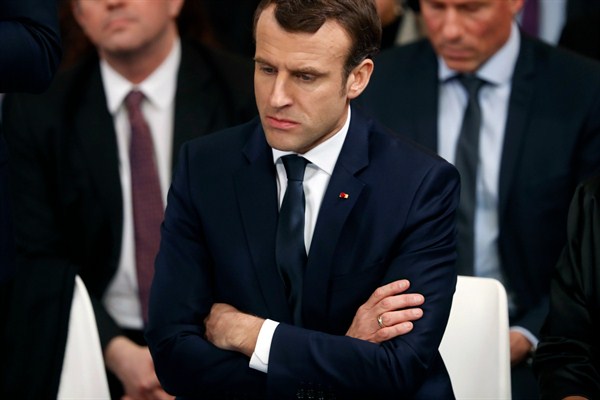Just when it looked like France’s Emmanuel Macron had weathered the storm that’s been battering his presidency for the past three months, new allegations from an old scandal have surfaced, raising questions about Macron’s level of exposure. They add to the trouble Macron still faces from the Yellow Vest movement, which though reduced in numbers, has been distilled to a resilient and hardened base of support. While the movement no longer poses a direct threat to his political survival, it is now Macron’s reaction to the protests that could undermine his legitimacy.
By early December, the spontaneous emergence, rapid growth and virulence of the Yellow Vest protest movement raised fears within Macron’s government that it could crystallize into a broader insurrection. Security officials reportedly even saw fit to dust off plans to secure the president, first lady and aides in Elysee Palace’s safe room in the event the presidential office and residence were breached. Over the course of those first few weeks, Macron himself seemed stunned and unable to formulate an appropriate response or reaction to the violence on display at the weekly Saturday mobilizations, directed at him personally as well as at symbols of the French state, like the Arc de Triomphe.
After a moment of paralysis, Macron and his Cabinet retreated, rescinding the fuel tax that had ostensibly triggered the protests, then sought to buy off the demonstrators with various subsidies, one-time bonuses and changes to the tax code in an effort to restore order. These moves, combined with a drop in support for the protests due to their shocking level of violence, provided the space Macron needed to dive into action, albeit action in a postmodern sense: a listening tour.

